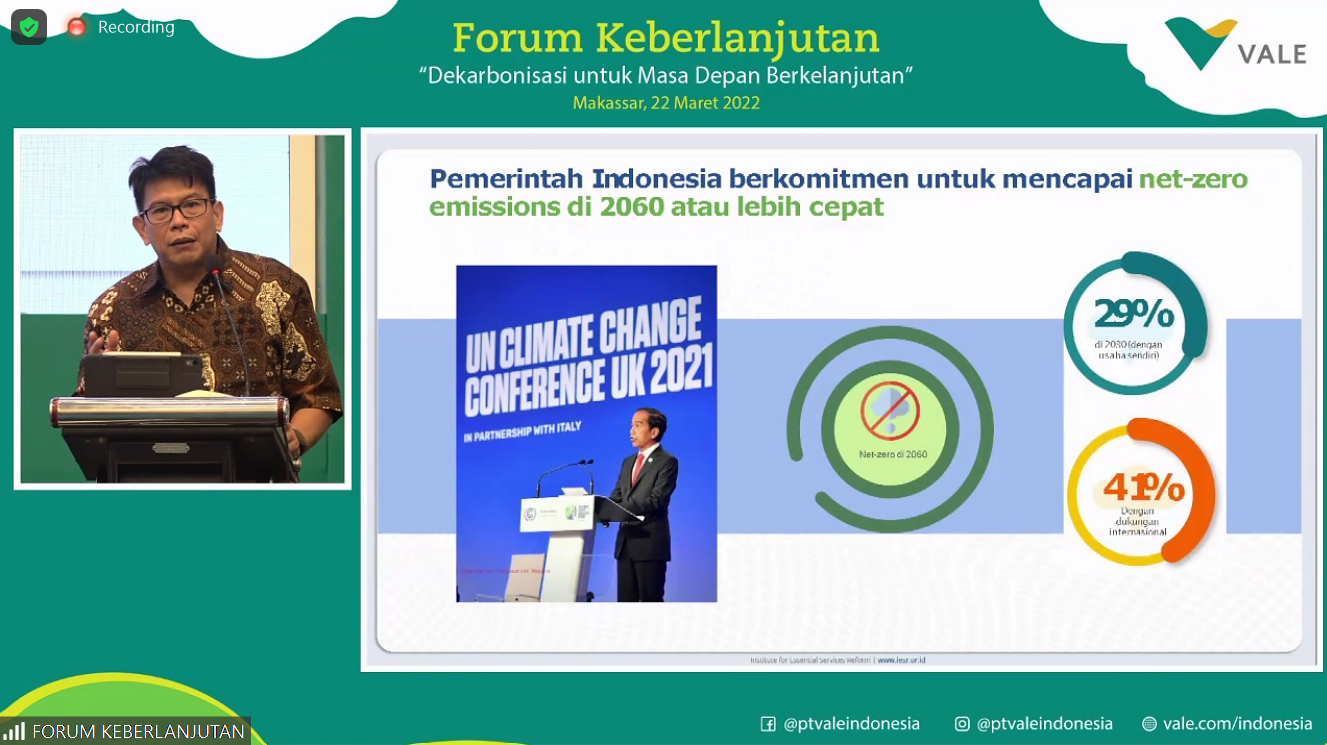"Coal still contributes 65% of our electricity, approximately 40% of the primary energy mix," said Fabby in the Indonesia Energy Transition Outlook (IETO), Thursday (20/11).
Read more at Katadata
The target of achieving a 23% renewable energy mix has fallen short, with the current realization only reaching around 13-14%. This situation is considered reasonable for developing countries that still face various structural obstacles. Read more on Kata Data.
Prabowo Subianto’s ambitious commitment has not gained traction in reality.
Read more on Bisnis Indonesia.
President Prabowo is aiming for 100% electricity from renewable energy sources within 10 years. IESR believes that concrete policies and the use of solar power plants are needed to achieve this target.
Read more on Bisnis Indonesia .
The Institute for Essential Services Reform (IESR) highlights the slow pace of private investment in supporting the acceleration of New and Renewable Energy (NRE) in Indonesia. Read more on Warta Ekonomi.
The agreement between Indonesia and Singapore in the development of new and renewable energy (EBT) has the potential to create 418 thousand jobs and absorb investment of up to 50 billion US dollars. Read more on Tempo.
Executive Director of the Institute for Essential Services Reform (IESR) Fabby Tumiwa considers the agreement to export electricity based on new and renewable energy (NRE) to Singapore as a strategic and mutually beneficial step, especially for Indonesia. Read more on Metro Tv.
Executive Director of the Institute for Essential Services Reform (IESR) Fabby Tumiwa considers the agreement to export electricity based on new and renewable energy (NRE) to Singapore as a strategic and mutually beneficial step, especially for Indonesia. Read more on Metro Tv.
CNN Indonesia | “Looking for the Root of the Problem of Unattractive NRE Project Funding for Banks “
Efforts to encourage the increase in new renewable energy (EBT) projects are thought to be running slowly due to the difficulty of obtaining funding. Read more on CNN Indonesia.
The clean energy sector or new renewable energy (NRE) is said to be able to create a large number of jobs. Read more on Kata Data.

Makassar, 22 March 2022 – Accelerating the use of clean energy is a fundamental point in ensuring the future of the economy and other sectors is maintained in the context of sustainability. This was raised in the Sustainability Forum held by PT Vale Indonesia Tbk on Tuesday (22/03). The activity raised the theme…

Jakarta, March 21, 2022 - Entering the harmonization stage in the Indonesian House of Representatives (DPR RI), the New Renewable Energy Bill (NRE Bill) is seen as deviating from the goal of encouraging the energy transition to achieve carbon neutrality by 2060 or as soon as possible. At the plenary meeting of the harmonization…
